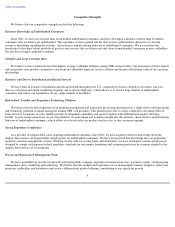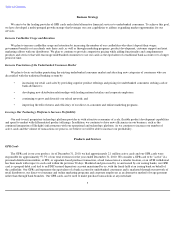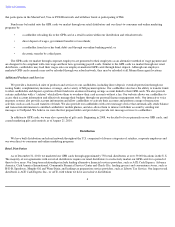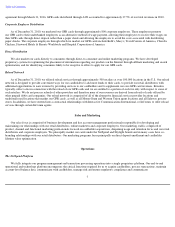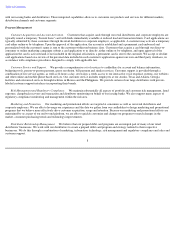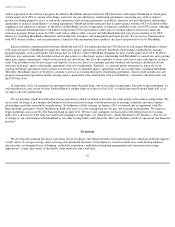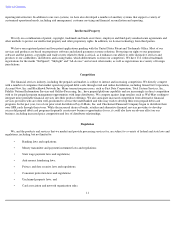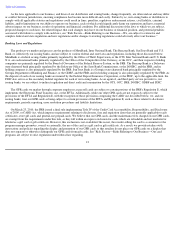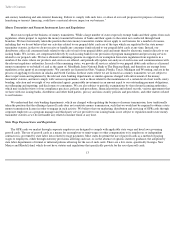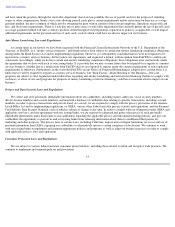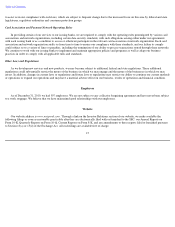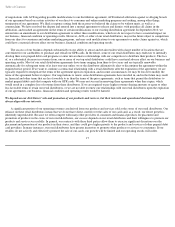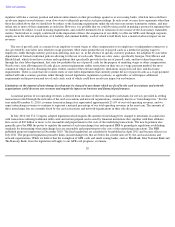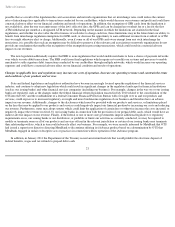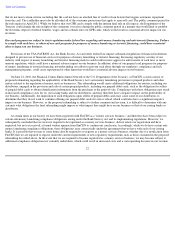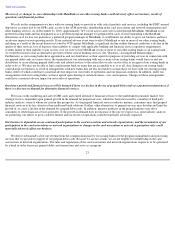NetSpend 2010 Annual Report Download - page 18
Download and view the complete annual report
Please find page 18 of the 2010 NetSpend annual report below. You can navigate through the pages in the report by either clicking on the pages listed below, or by using the keyword search tool below to find specific information within the annual report.
Table of Contents
and have taken the position, through the state labor department, that state law prohibits the use of payroll cards for the purpose of remitting
wages or other compensation. Nearly every state allowing payroll cards places certain requirements and/or restrictions on their use as a wage
payment method, the most common of which involve obtaining the prior written consent of the relevant employee, limitations on payroll card
fees, and disclosure requirements. There is a risk that one or more states or state labor departments that currently permit the use of payroll cards
as a wage payment method will take a contrary position, either through revised legislation, regulation or policies, as applicable, or will impose
additional requirements on the provision and use of such cards, each of which could have an adverse impact on our business.
Anti
-Money Laundering Laws and Regulations
At certain times in our history we have been registered with the Financial Crimes Enforcement Network of the U.S. Department of the
Treasury, or FinCEN, as a "money services business," and therefore have been subject to certain anti-
money laundering compliance obligations
arising under the Bank Secrecy Act and its implementing regulations. However, we subsequently concluded that we were not required to be
registered as a money services business, did not renew our registration, and requested a formal, written opinion from FinCEN to confirm our
conclusion. Accordingly, while we do have certain anti-money laundering compliance obligations, these obligations arise contractually under
the agreements that we have with each of our issuing banks. It is possible that we may at some future date be required to re-register as a money
services business, whether due to a notification from FinCEN that we are required to register under the current requirements or new regulatory
requirements or otherwise. Furthermore, in the event that FinCEN's recent Notice of Proposed Rulemaking is adopted in its current form, it is
likely that we will be required to register as a money services business. See "Risk Factors—Risks Relating to Our Business—Our card
programs are subject to strict regulation under federal law regarding anti-money laundering and anti-terrorist financing. Failure to comply with
such laws, or abuse of our card programs for purposes of money laundering or terrorist financing, could have a material adverse impact on our
business."
Privacy and Data Security Laws and Regulations
We collect and store personally identifiable information about our cardholders, including names, addresses, social security numbers,
driver's license numbers and account numbers, and maintain a database of cardholder data relating to specific transactions, including account
numbers, in order to process transactions and prevent fraud. As a result, we are required to comply with the privacy provisions of the Gramm-
Leach-Bliley Act and its implementing regulations, or GLBA, various other federal and state privacy statutes and regulations, and the Payment
Card Industry Data Security Standard, each of which is subject to change at any time. In order to comply with our obligations under GLBA and
applicable state laws, and our agreements with our issuing banks, we are required to safeguard and protect the privacy of such personally
identifiable information, make disclosures to our cardholders regarding the applicable privacy and information sharing policies, and give our
cardholders the opportunity to prevent us and our issuing banks from releasing information about them to unaffiliated third parties for
marketing and other purposes. The privacy laws of certain states, including California, impose more stringent limitations on access and use of
personal information than GLBA, requiring our cardholders to affirmatively opt-in to certain categories of disclosures. We continue to work
with our issuing banks to implement and maintain appropriate policies and programs as well as adapt our business practices in order to comply
with applicable privacy laws and regulations.
Consumer Protection Laws and Regulations
We are subject to various federal and state consumer protection laws, including those related to unfair and deceptive trade practices. We
continue to implement and maintain policies and procedures
14


